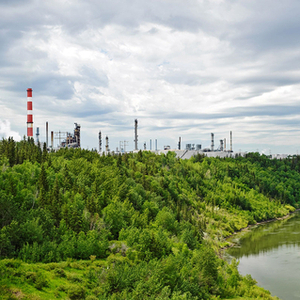Imperial to produce renewable diesel at Strathcona refinery

SOURCE: Business Wire
August 26, 2021
BY Imperial
Imperial is moving forward with plans to construct a world-class renewable diesel complex at its Strathcona refinery near Edmonton, Alberta. This new complex is expected to produce more than 1 billion liters per year of renewable diesel from locally sourced and grown feedstocks. The project is expected to realize about 3 million metric tons per year in emissions reductions in the Canadian transportation sector.
“Imperial is excited to announce our plan to build the largest renewable diesel manufacturing facility in Canada,” said Brad Corson, Imperial chairman, president and CEO. “This world-class facility will be a significant value-generating, forward-looking project that brings together our proprietary technologies and refining scale to the benefit of the environment, the economy and local job creation. Today’s announcement further demonstrates Imperial’s commitment and support for Canada’s transition to lower-emission fuels, as well as Canada’s ambition to achieve net zero by 2050.”
Renewable diesel production will source blue hydrogen (hydrogen produced from natural gas with carbon capture and storage) to substantially reduce greenhouse gas emissions relative to conventional hydrogen production. Approximately 500,000 metric tons of CO2 are expected to be captured annually. The blue hydrogen and biofeedstock will be combined with a proprietary catalyst to produce premium low-carbon diesel fuel.
Advertisement
Imperial is currently in partnership discussions with government and industry, including the Government of Alberta, as well as the Government of British Columbia who have agreed to support this project with an agreement under Part 3 of its low-carbon fuel legislation.
A final investment decision will be based on several factors, including government support and approvals, market conditions and economic competitiveness. The project is expected to create about 600 direct construction jobs, along with hundreds more through investments by our business partners. Renewable diesel production is anticipated to start in 2024.
Third-party studies have shown renewable diesel from various non-petroleum feedstocks can provide life-cycle greenhouse gas emissions reductions of approximately 40 percent to 80 percent compared to petroleum-based diesel. The reduction of 3 million metric tons of greenhouse gases is estimated to be the equivalent to taking more than 650,000 passenger vehicles off the road for one year.
Advertisement
Today’s announcement builds on Imperial’s commitment to reducing emissions. In June, Imperial announced its participation as a founding member of the Oil Sands Pathways to Net Zero Alliance. The goal of this unique alliance, working collectively with the broader oil and gas industry and the federal and Alberta governments, is to achieve net-zero greenhouse gas emissions from oil sands operations by 2050 to help Canada meet its climate goals, including its Paris Agreement commitments and 2050 net-zero aspirations. The company is committed to achieving this through projects that drive value for our shareholders.
This investment at the Strathcona refinery underscores its strategic importance to Imperial’s operations. As the largest refinery in western Canada, Strathcona provides valuable products that keep our communities and the economy moving.
Related Stories
CoBank’s latest quarterly research report, released July 10, highlights current uncertainty around the implementation of three biofuel policies, RFS RVOs, small refinery exemptions (SREs) and the 45Z clean fuels production tax credit.
The U.S. Energy Information Administration maintained its forecast for 2025 and 2026 biodiesel, renewable diesel and sustainable aviation fuel (SAF) production in its latest Short-Term Energy Outlook, released July 8.
XCF Global Inc. on July 10 shared its strategic plan to invest close to $1 billion in developing a network of SAF production facilities, expanding its U.S. footprint, and advancing its international growth strategy.
U.S. fuel ethanol capacity fell slightly in April, while biodiesel and renewable diesel capacity held steady, according to data released by the U.S. EIA on June 30. Feedstock consumption was down when compared to the previous month.
XCF Global Inc. on July 8 provided a production update on its flagship New Rise Reno facility, underscoring that the plant has successfully produced SAF, renewable diesel, and renewable naphtha during its initial ramp-up.
Upcoming Events










